“In your belly you hold the treasures few have ever seen.”
— Jimmy Buffett, ‘A Pirate Looks at 40’
When your foot presses into firm, wet sand, it leaves a brief, but detailed imprint on the earth. And though, with the next wave that washes over the beach, that footprint is gone, there’s no shame in knowing you left your mark on this place, at this moment in time. And a fleeting moment it is.
If you’re lucky, that next wave of warm Gulf water will lap at your ankles, and in seconds, you’re part of two worlds. As the wave pulls back, you can feel the sea tugging the sand out from under your bare feet, seductively inviting you to take one step closer, one small step toward the water world where we can only visit, despite our best efforts to conquer it.
This time of year, the ocean pulls at me. The sound of surf breaking over the sand and onto the beach is a siren call that I resist most of the time, only because the draw of the mountains and the allure of cold, clear water running off the shoulders of the world keeps me grounded at altitude. But occasionally, I answer the call of the salt. I guiltily turn my back on the mountains and the rivers, and I venture to the sea to be romanced by water.
This year has been particularly difficult. When the COVID-19 outbreak started in earnest last February and March, I was forced to postpone two trips south — first, a vacation to southwest Florida with friends, and then a redfish trip to coastal Alabama. Then, of course, every summer trip I had on the books was nixed — a pike trip to the Yukon and a couple of more remote Canadian adventures were casualties of the virus. But it was the salty adventures that really stung.
When you live in the northern Rockies, winter comes early. By Thanksgiving the trees are nude, the grass — if it’s not covered in snow — is brown and crunchy. The mountains are capped in snow that won’t go away until July. The Pacific Northwest’s dismal reach extends across the Snake River Plain and the cold, gray blanket of winter starts to curl around the landscape.
It can be downright claustrophobic. That’s why, after just a couple of months of dismal weather, the beach and the salt become a siren song for anglers. And, frankly, for anyone who just needs to soak up some sun.
Along the Gulf, the air is soft and warm when it’s frigid and icy back home. The breeze coming off the Gulf, pushed north from the Yucatan and the Caribbean, doesn’t blow so much as it embraces. Like the water it stirs into waves and whitecaps, it finds its way into your soul and it, like a footprint in the sand, remains until something else comes along and washes it away. And, honestly, that imprint lasts much longer than that fleeting footprint at the edge of the surf.
The water along the coast is bipolar. The violence of the surf —which is at its angriest in the winter (save for when a named storm is pushing it against the continent in summer) — is countered by the clarity and the stillness of the bay, and the vagabond angler can pick his poison. He can shuffle his feet in the sand and wander for miles in knee-deep water, watching for cruising targets just under the surface, or he can face the waves and the wind and cast blindly into the breakers, knowing the next wall of white could slap him in the face and test his mettle.
Either choice is honorable, for eventually, the waves meet the bay, thanks to that ever-present breeze that pushes water through cuts and over sandbars. Through these cuts swim fish so strong, so hardy, that connecting with one, even briefly, will turn a trout angler’s blood cold for a split second and make him question the sanity of standing in their world while trying to fight them into ours.
I answer the call of the salt when I can. And I will again, as soon as COVID allows it. And while I’ll return to the mountains, my beloved cold, clean water, and the special fish that swim there, it might be a while before that mark, left by a warm, salty breeze and the pull of a mighty fish on a tight line, is completely washed away.
The ocean calls to me. Now and then, it needs an answer.

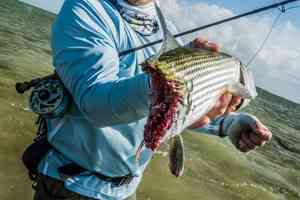


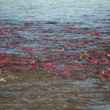
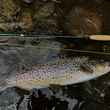
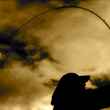




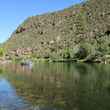
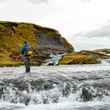
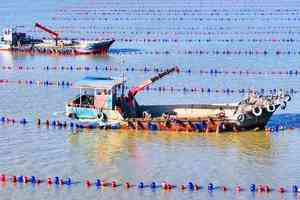
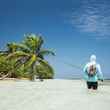

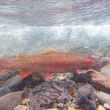









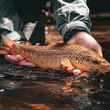
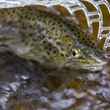
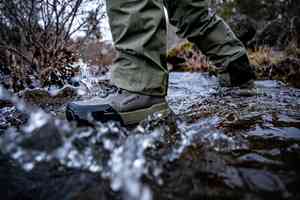
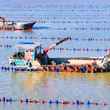
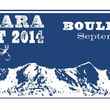
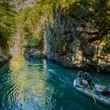
Comments